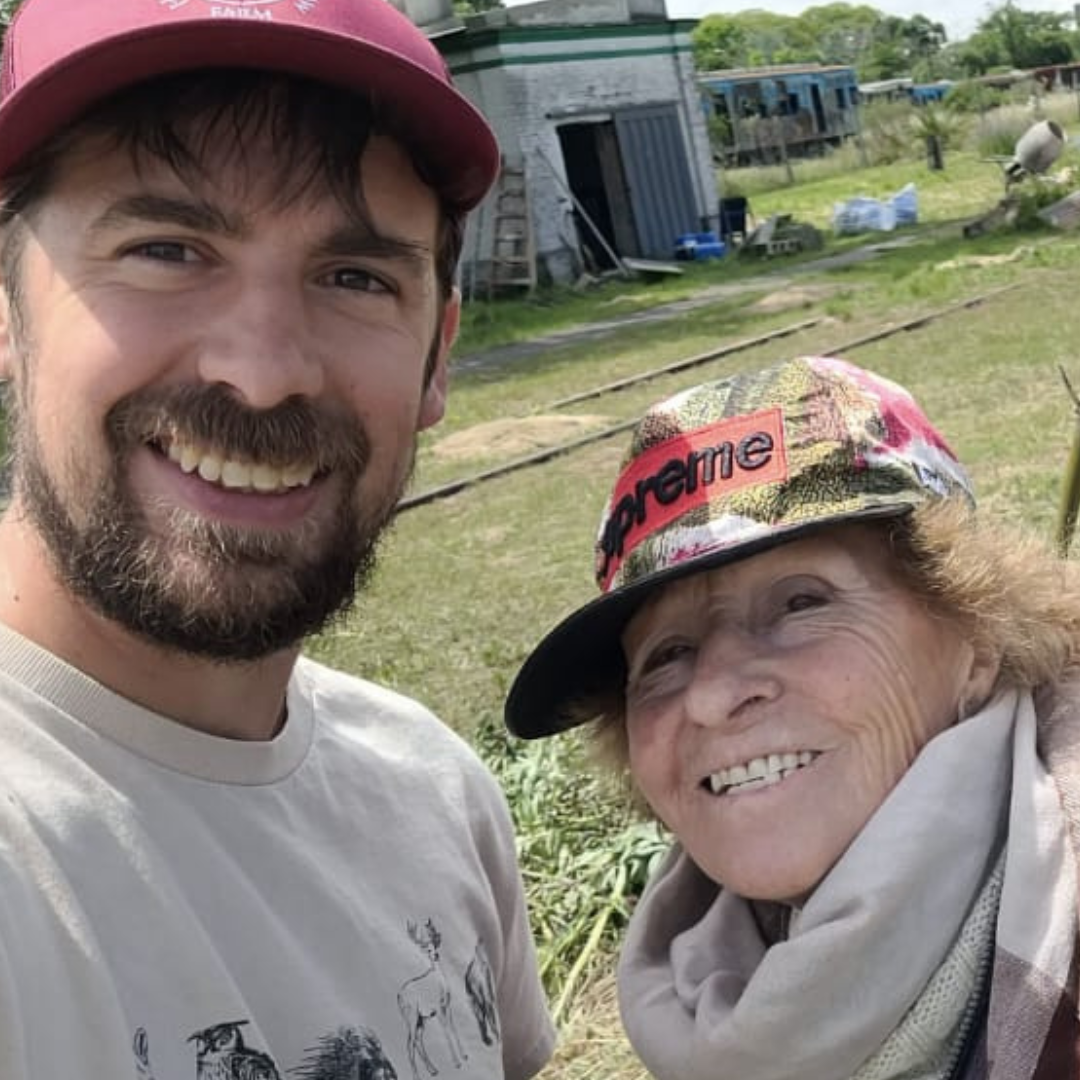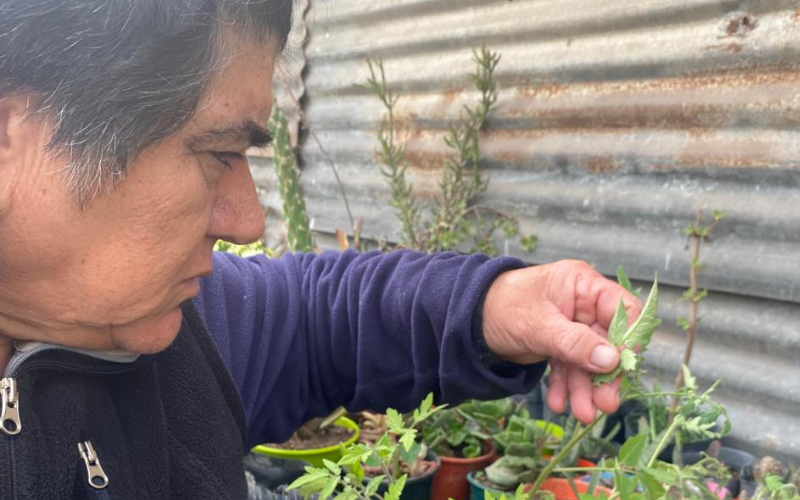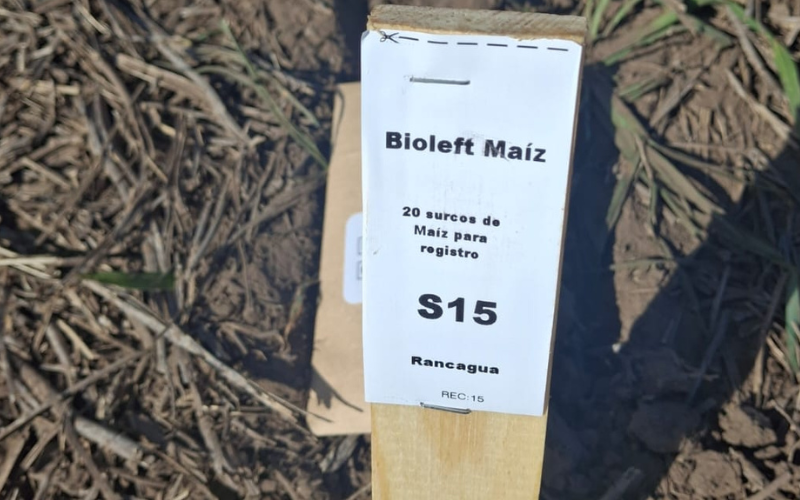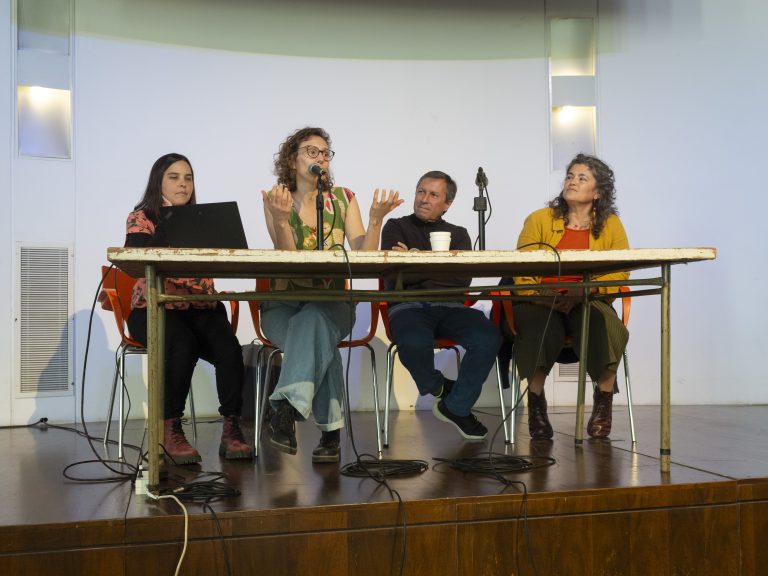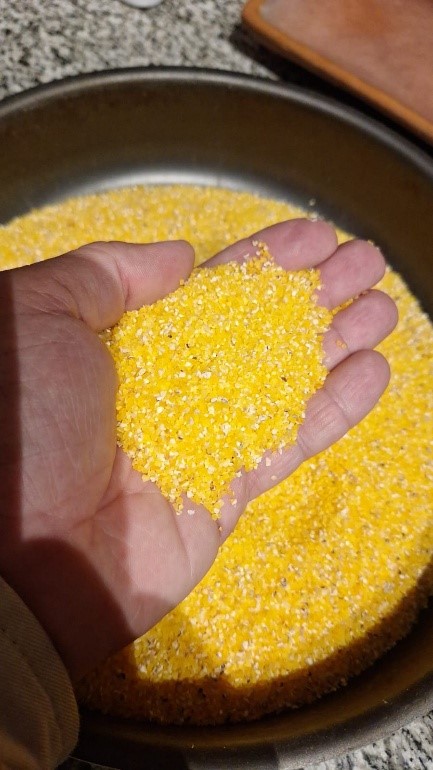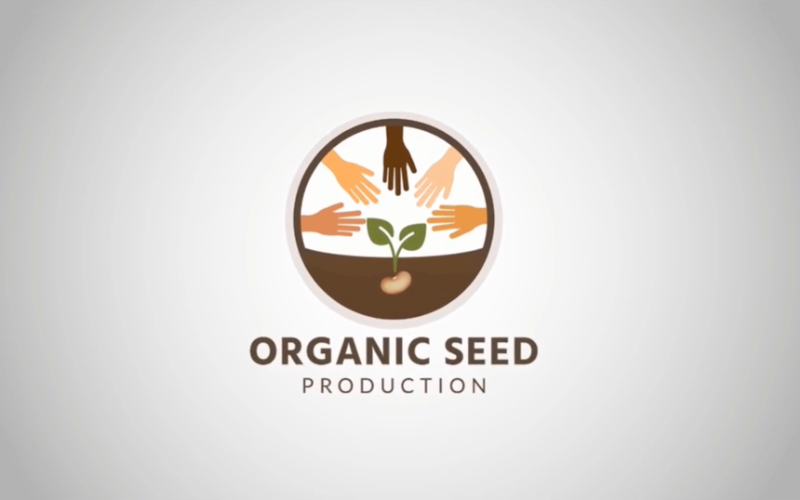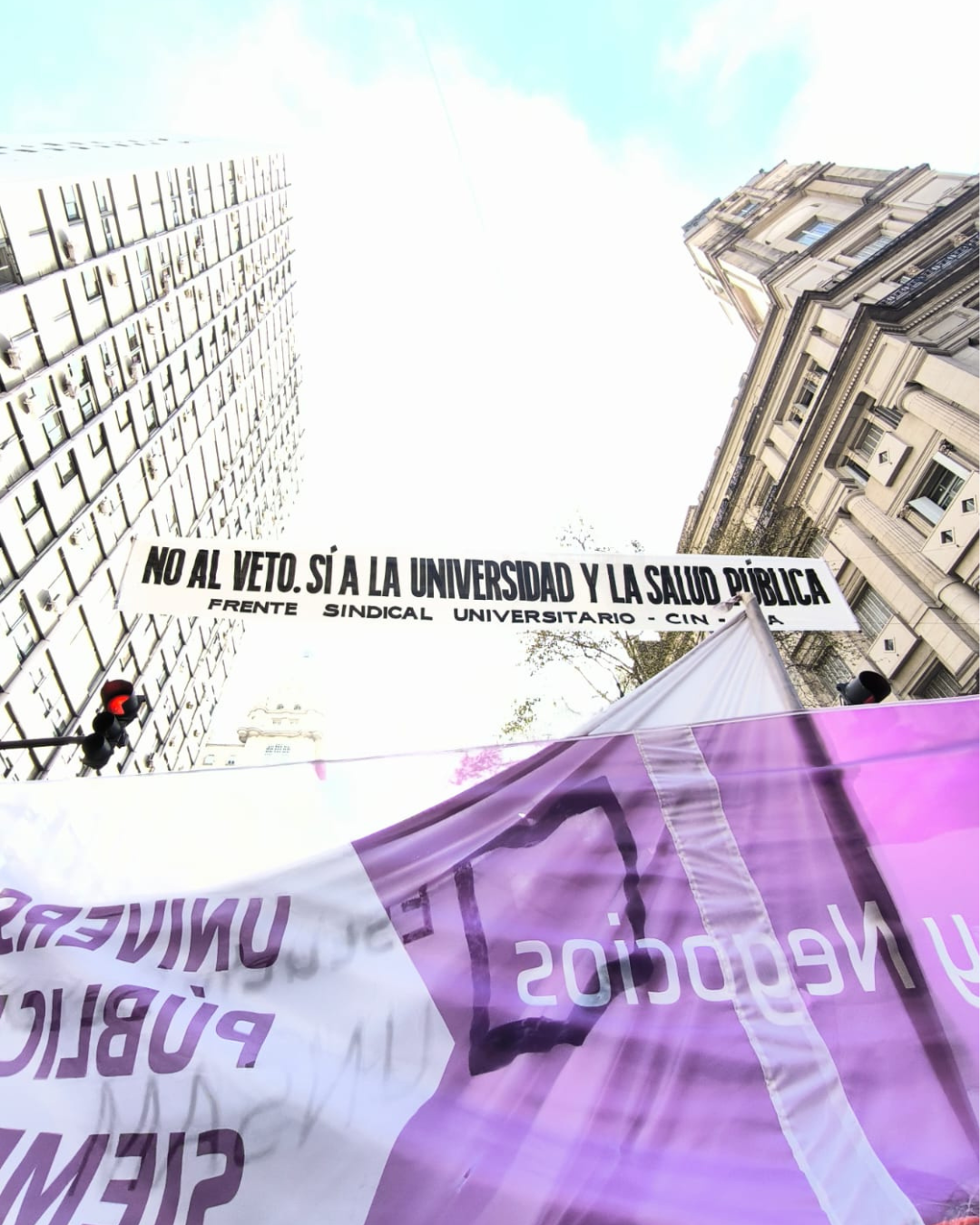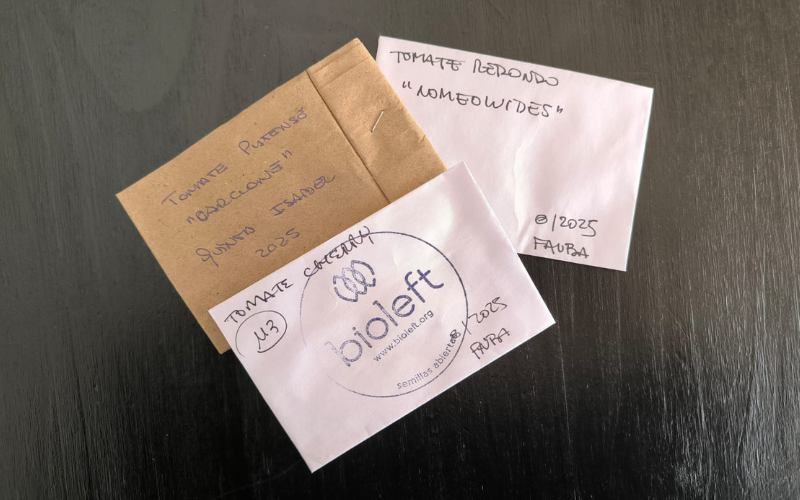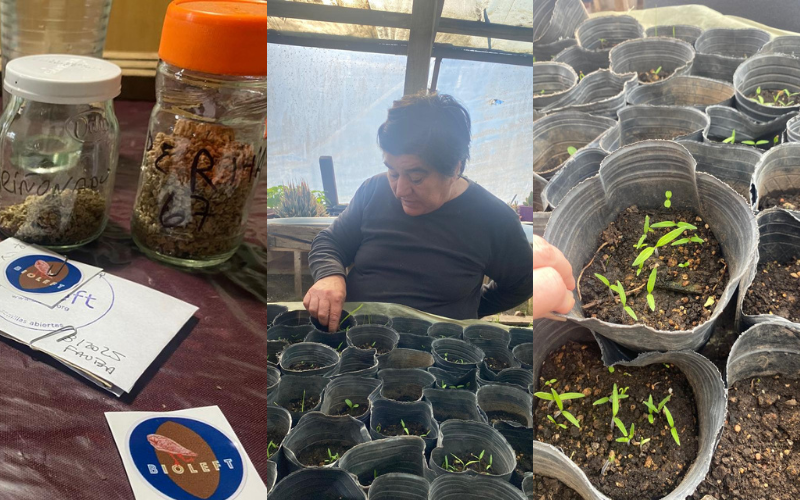Comienza la campaña 2025–2026 en la parcela experimental de Bioleft en la UNSAM
El 28 de octubre, Elba y David realizaron el trasplante de tomates en la parcela de Bioleft ubicada en la UNSAM, dando inicio a una nueva campaña de evaluación participativa. Este año, el ensayo incluye tres variedades: NoMeOlvides, Carcione (variedad platense) y #113 (variedad cherry). Los plantines fueron sembrados y cuidados por Elba en su vivero hasta alcanzar el momento óptimo para su trasplante.
Read more